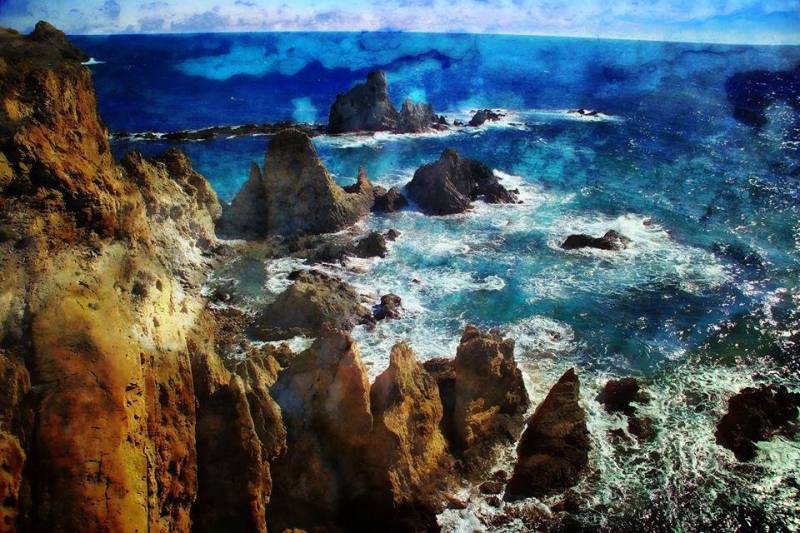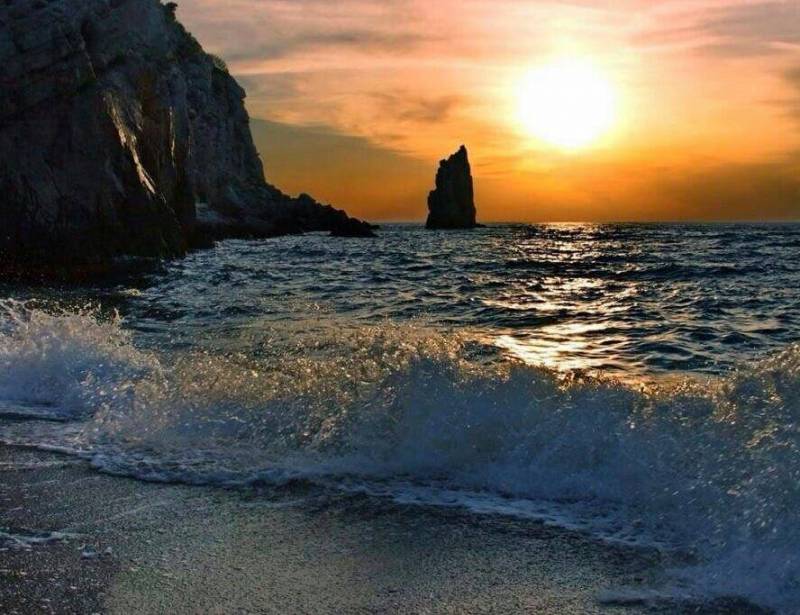- Region
- Vega baja
- Marina Alta
- Marina Baixa
- Alicante
- Baix Vinalopo
- Alto & Mitja Vinalopo
-
ALL TOWNS
- ALICANTE TOWNS
- Albatera
- Alfaz Del Pi
- Alicante City
- Alcoy
- Almoradi
- Benitatxell
- Bigastro
- Benferri
- Benidorm
- Calosa de Segura
- Calpe
- Catral
- Costa Blanca
- Cox
- Daya Vieja
- Denia
- Elche
- Elda
- Granja de Rocamora
- Guardamar del Segura
- Jacarilla
- Los Montesinos
- Orihuela
- Pedreguer
- Pilar de Horadada
- Playa Flamenca
- Quesada
- Rafal
- Redovan
- Rojales
- San Isidro
- Torrevieja
- Comunidad Valenciana
article_detail
Date Published: 17/04/2023
The secret history of the Cabo de Gata: Where is the hidden pirate treasure of Almeria, Spain?
Treasure is believed to have been hidden in an underwater cave at Cabo de Gata to prevent it from being stolen by Christians

Exceptional beaches and coves are widely considered to be the jewels in Cabo de Gata's crown. However, there is far more to this intriguing, protected coastal area in Almeria.
In fact, legend has it that pirate treasure is hidden in Cabo de Gata. According to folklore, a sultan hid a large cache in an underwater cave to prevent it from being stolen by Christians.
The sultan died before he could tell his relatives where he had hidden the treasure, and to this day, it has not yet been found.
The loot is believed to have been stashed in an underwater cave located in the rocky promontory of the Vela Blanca that juts into the sea, where a watchtower oversees any movement of boats and ships approaching the coast.
So many cultures have passed through Cabo de Gata that it's only natural the area has its fair share of legends forged over centuries.

The area is the remains of a volcano that has shaped the landscape, such as the Mermaid Reef, which takes its name from the existence of a colony of monk seals that, according to folklore, were the guardians of the sultan's treasure and didn't hesitate to attack and kill anyone who tried to approach it.
The natural park is, in itself, a treasure with landmarks steeped in history, including Genoese beach. Here, an armada of more than 200 Genoese ships anchored to put an end to piracy in Almería.
The Phoenicians called it the Promontorio Charidemo, and later the Greeks built a temple dedicated to Aphrodite. Another myth has it that the light that illuminated the temple never went out.
It was known as the promontory of Venus by the Romans, and, in the Middle Ages, it was called the Cape of Agates, due to the abundance of this mineral in the area. Agate is a common rock formation, consisting of chalcedony and quartz as its primary components, with a wide variety of colours and from there derives the natural area's current name: Cabo de Gata.
Images. Turismo Almeria
staff.inc.ali
Loading
Sign up for the Spanish News Today Editors Roundup Weekly Bulletin and get an email with all the week’s news straight to your inbox
Special offer: Subscribe now for 25% off (36.95 euros for 48 Bulletins)
OR
you can sign up to our FREE weekly roundup!
Read some of our recent bulletins:
Discount Special Offer subscription:
36.95€ for 48 Editor’s Weekly News Roundup bulletins!
Please CLICK THE BUTTON to subscribe.
(List price 3 months 12 Bulletins)
Read more stories from around Spain:
Contact Murcia Today: Editorial 000 000 000 /
Office 000 000 000

















